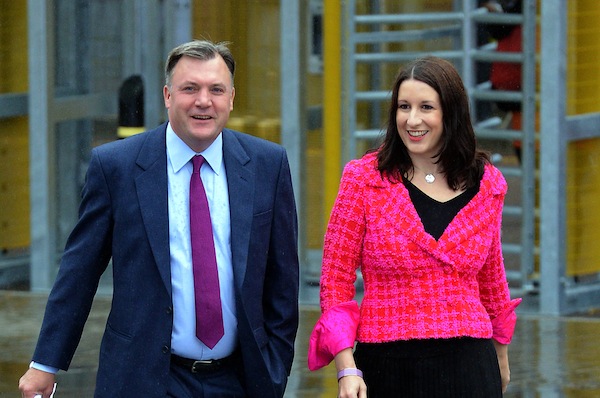Rachel Reeves, the Shadow Work and Pensions Secretary, gave a speech earlier this week on the future of the welfare system. The choice that she presented was one between ‘…failing programmes and waste driving up social security spending under the Tories’, and Labour’s reforms to ‘…make work pay and get social security spending under control’. To claim that the current government has failed to control benefit spending is a bold tactic from a Labour Party economic spokesperson, and the numbers used to support the argument were so striking that they deserve some scrutiny.
Claim One: The Conservatives have spent £13bn more on social security in this parliament than they had originally intended to.
If this figure is correct, it equates to an average annual overspend over five years of around £2.6bn, which is just over 1 per cent of total welfare expenditure in 2014/15. The recently announced Welfare Cap, which sets an annual limit on the spending of a collection of benefits, and which has cross-party support, has an allowable margin of forecast error of 2 per cent. With this in mind, the £13bn figure looks like less a gross mismanagement of public funds, and more of an understandable error inherent in producing forecasts in a period of economic uncertainty.
Claim Two: The number of working people claiming housing benefit will double between 2010 and 2018, and will cost a ‘staggering’ £12.9bn.
According to the government’s forecast, the number of housing benefit claimants who are jobseekers will fall from 643,000 in 2010/11 to 494,000 in 2018/19, and claimants who also receive working age income-related benefits will fall from 143,000 in 2010/11 to 32,000 in 2018/19. In other words, it is reasonable to expect that, as the labour market improves, some claimants who had previously not been working (or who are on income-related benefits) will become claimants who are working, or who have higher incomes. In total, the government forecasts that the total number of people claiming housing benefit will rise by just under 8 per cent between 2010/2011 and 2018/19, far less than the doubling of working claimants that Labour believes will occur. The increased cost argument also looks flimsy; the housing benefit bill rose by an average annual rate of 6.1 per cent between 2005 and 2010, but only by 2.2 per cent a year between 2010 and 2015.
Claim Three: Tax Credit expenditure will rise by an ‘astonishing’ £2.5bn over the next parliament.
This figure looks to be in the right ballpark, but given that expenditure on Child and Working Tax Credit fell in real terms over the course of this parliament, yet increased by 43 per cent between 2005 and 2010, which amounts to an £9bn increase in 2014/15 prices, it is difficult to see why the conclusion has been reached that this spending increase is actually that ‘astonishing’. What’s more, the implication of this statement is that Labour thinks tax credit spending is too high. If that is the case, it is unclear how they intend to bring it down.
Hopefully, as the electoral race unfolds over the next nine months, there will be a sensible debate about the future options for the public finances, and clarity on the strategy each party has for managing them.
Steve Hughes is the Deputy Head of Economic and Social Policy at Policy Exchange






Comments